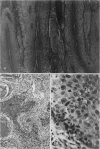Abstract
Nucleic acid extracts from transplantable carcinomas Vx7 and Vx2, long maintained in domestic rabbits, were assayed for their ability to produce papillomas in animals of this kind. The Vx7 had been serially transferred 111 times when this was attempted and Vx2 was in its 203rd generation. The nucleic acid extracts from the Vx7 carcinomas consistently yielded papillomas whereas those from Vx2 completely failed to do so. The tumorigenicity of the Vx7 extracts was slight and regression of the induced papillomas often took place, as happens not infrequently to the growths caused by nucleic acid extracts obtained directly from papillomas. Malignant conversion, a common event in tumors induced by Shope papilloma virus, was also observed to occur among papillomas which were induced by the nucleic acid extracts from Vx7 carcinomas, and which kept persisting over a year on the skin of experimental animals.
Full text
PDF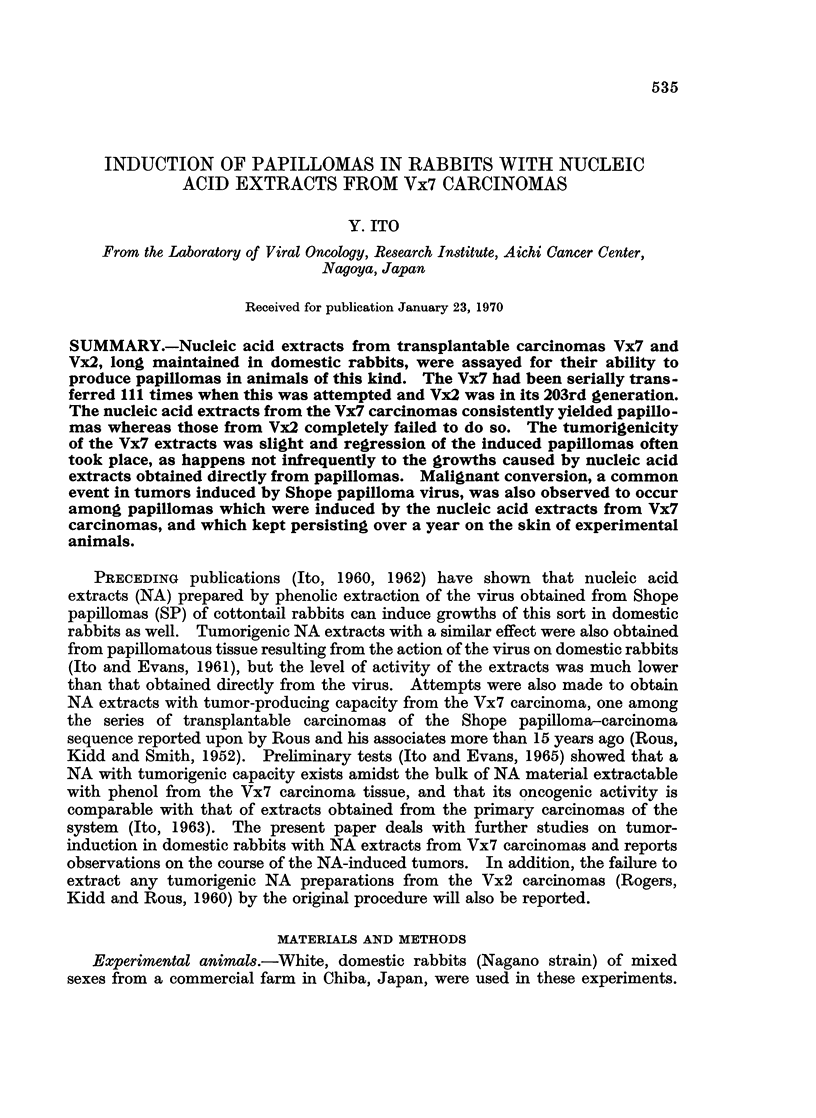
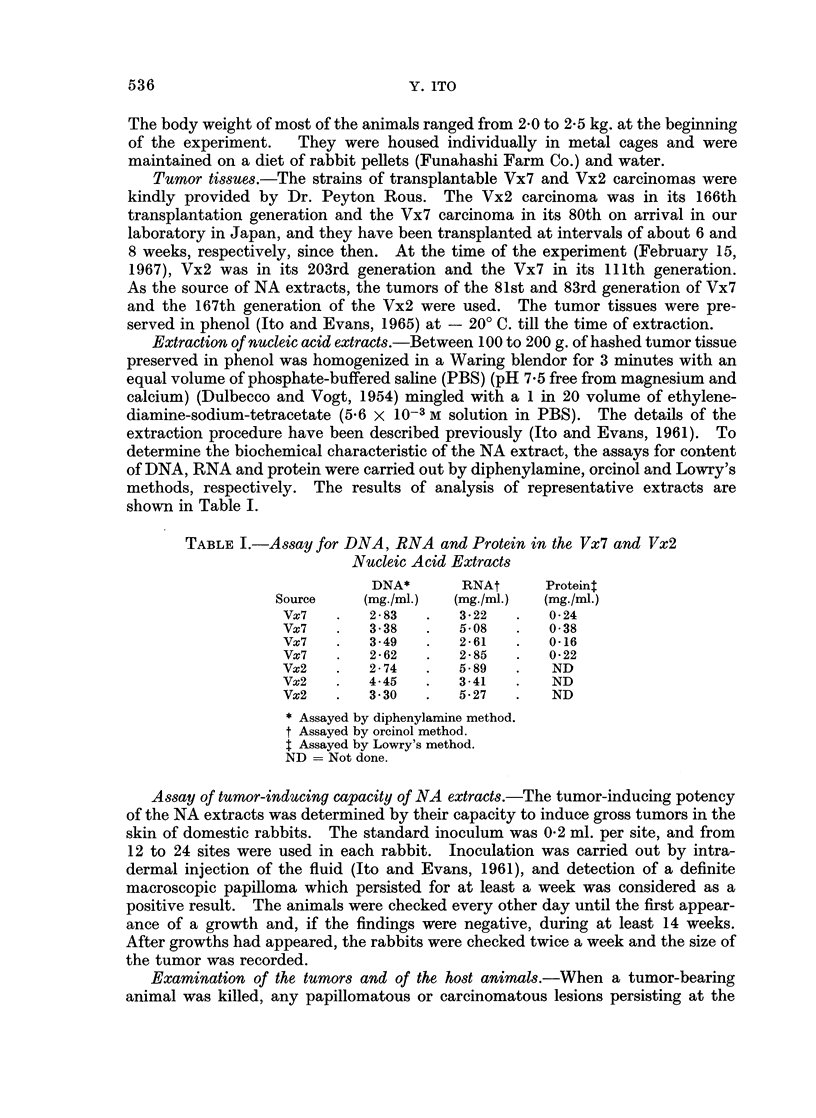
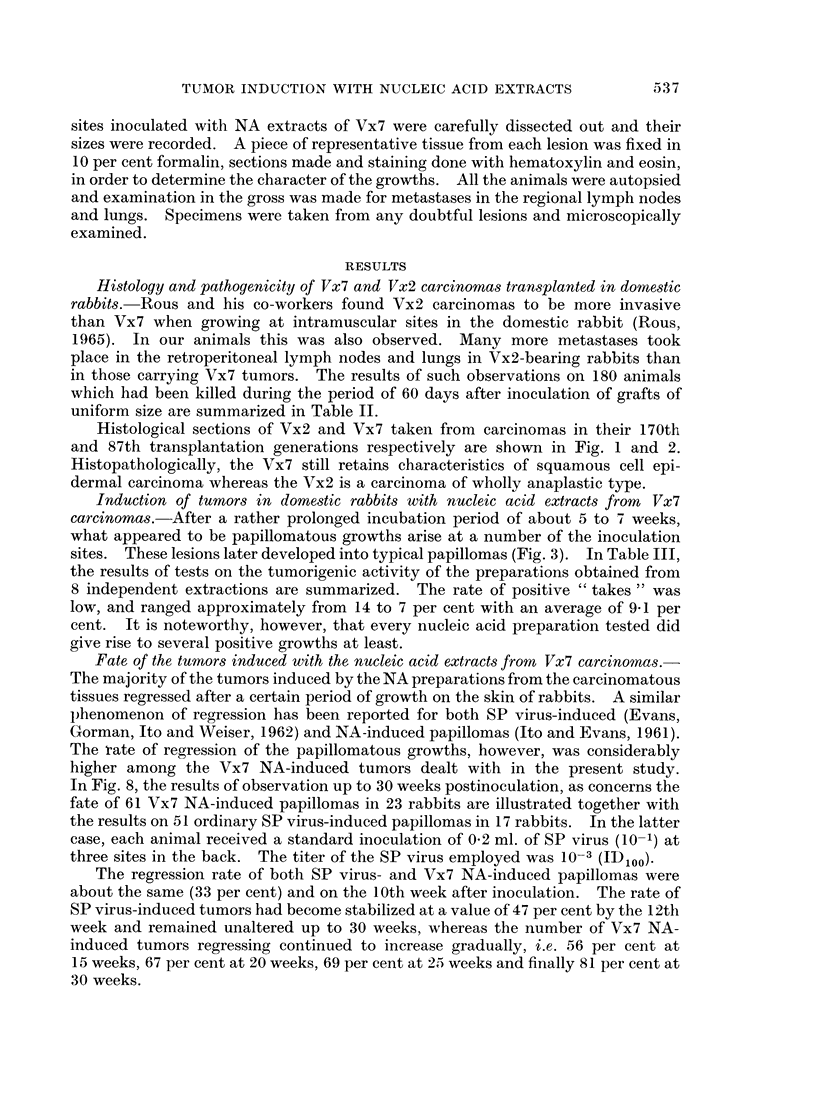
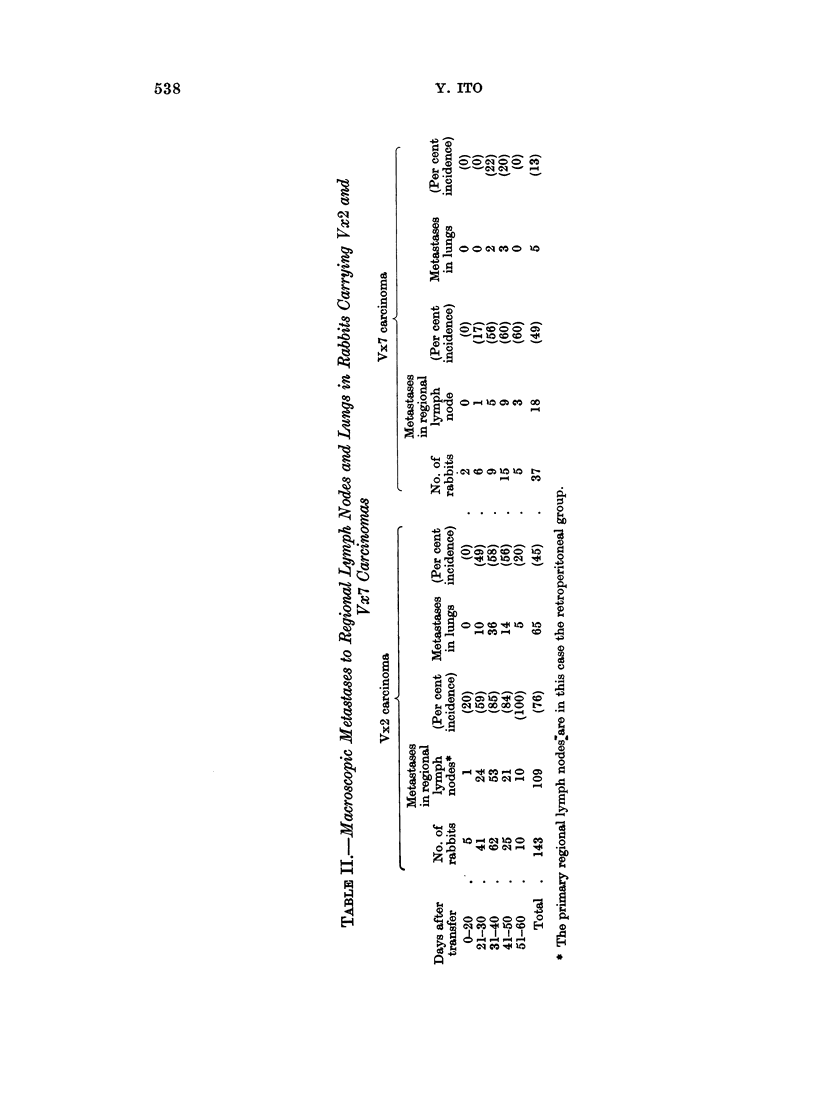
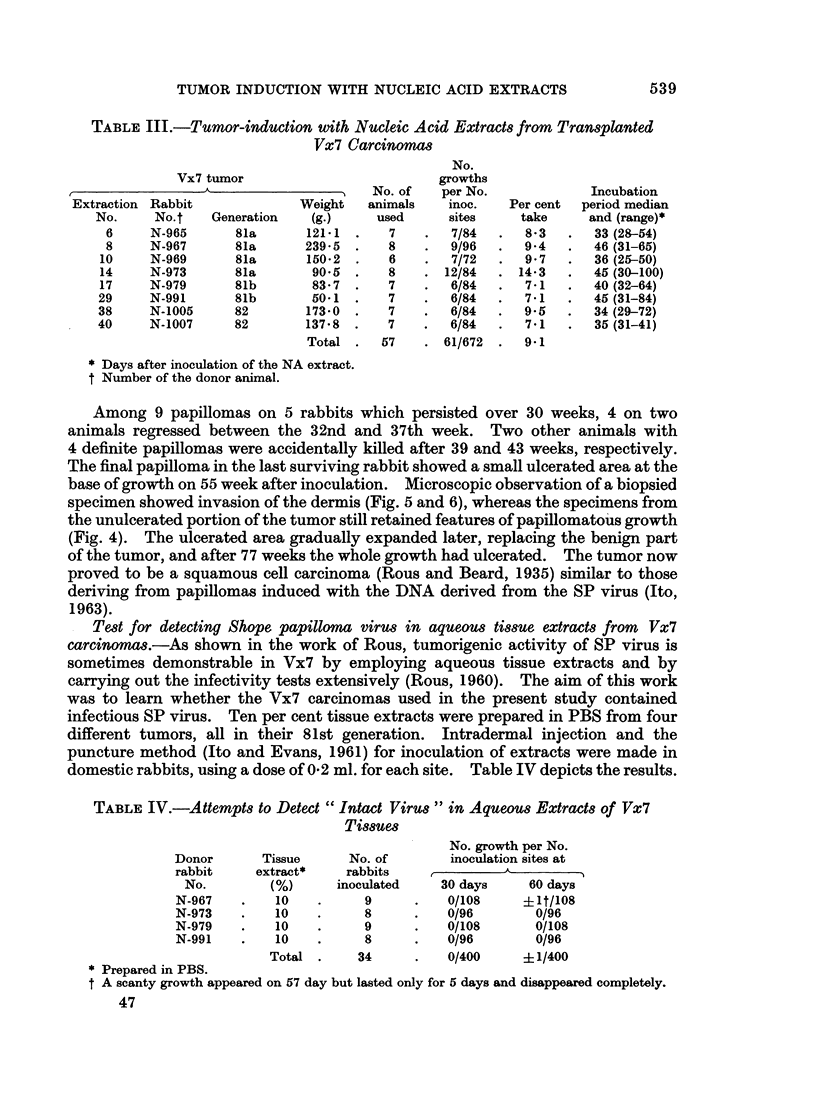
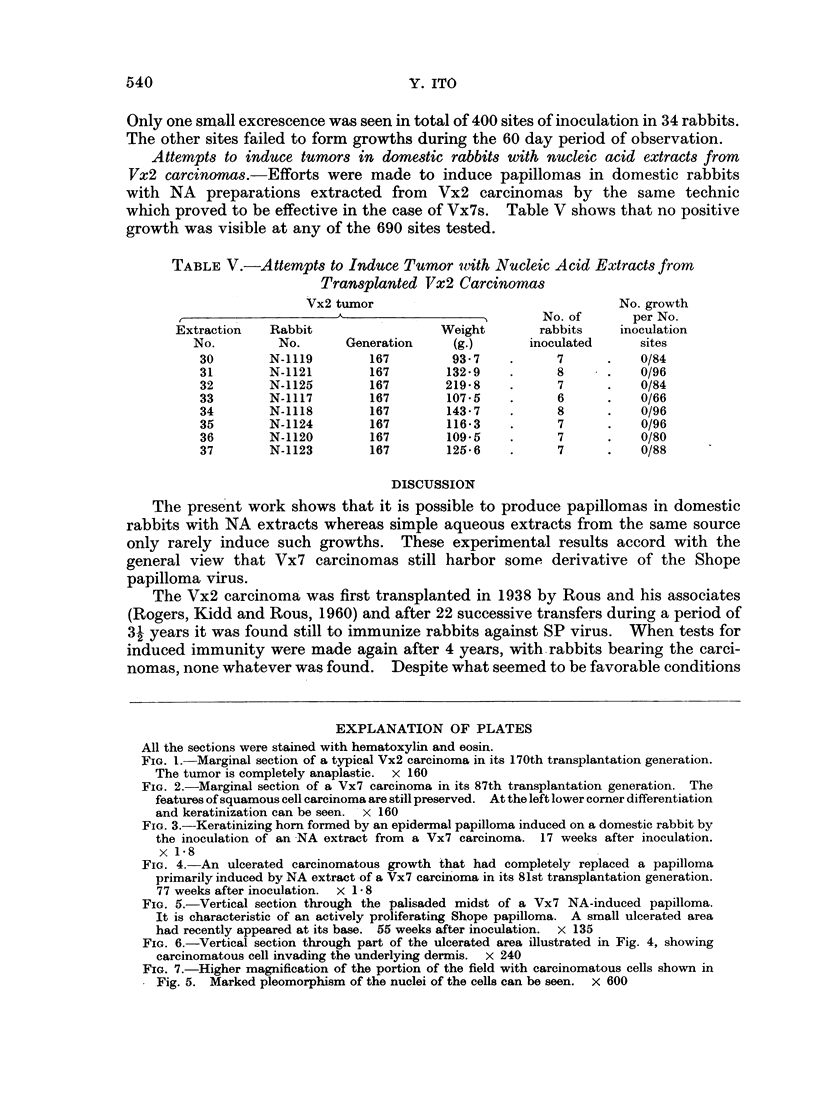
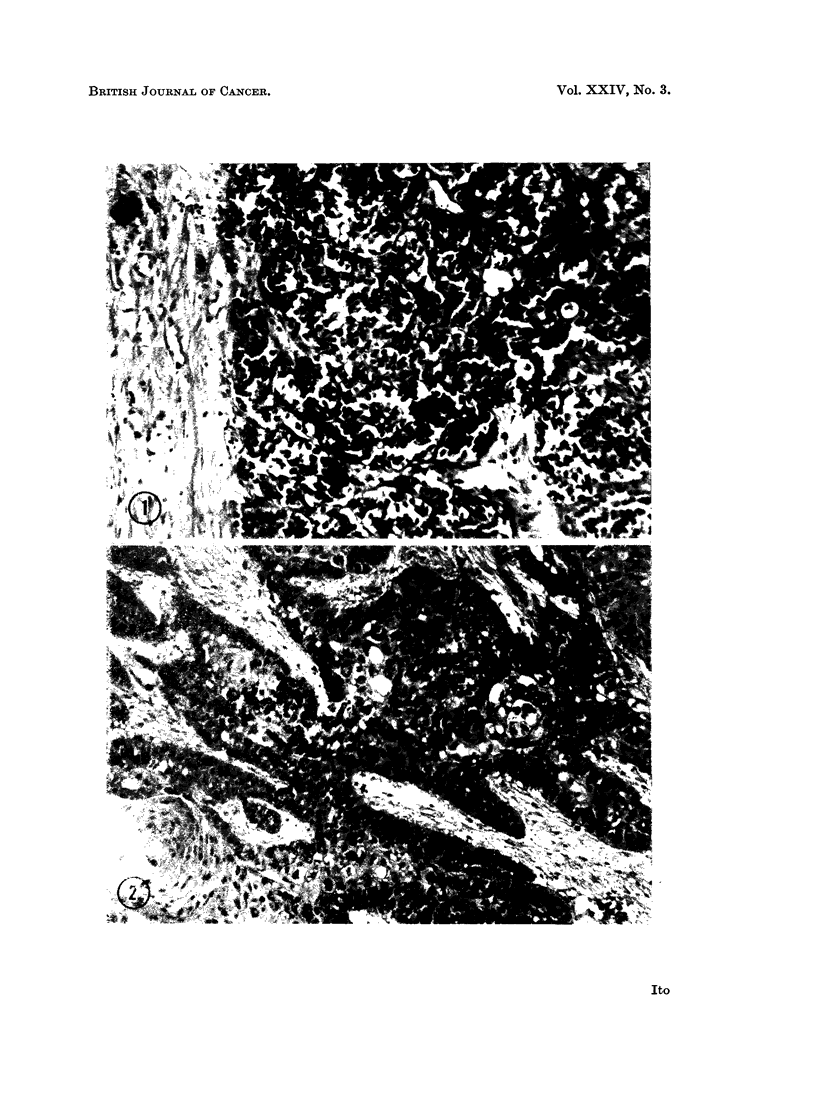
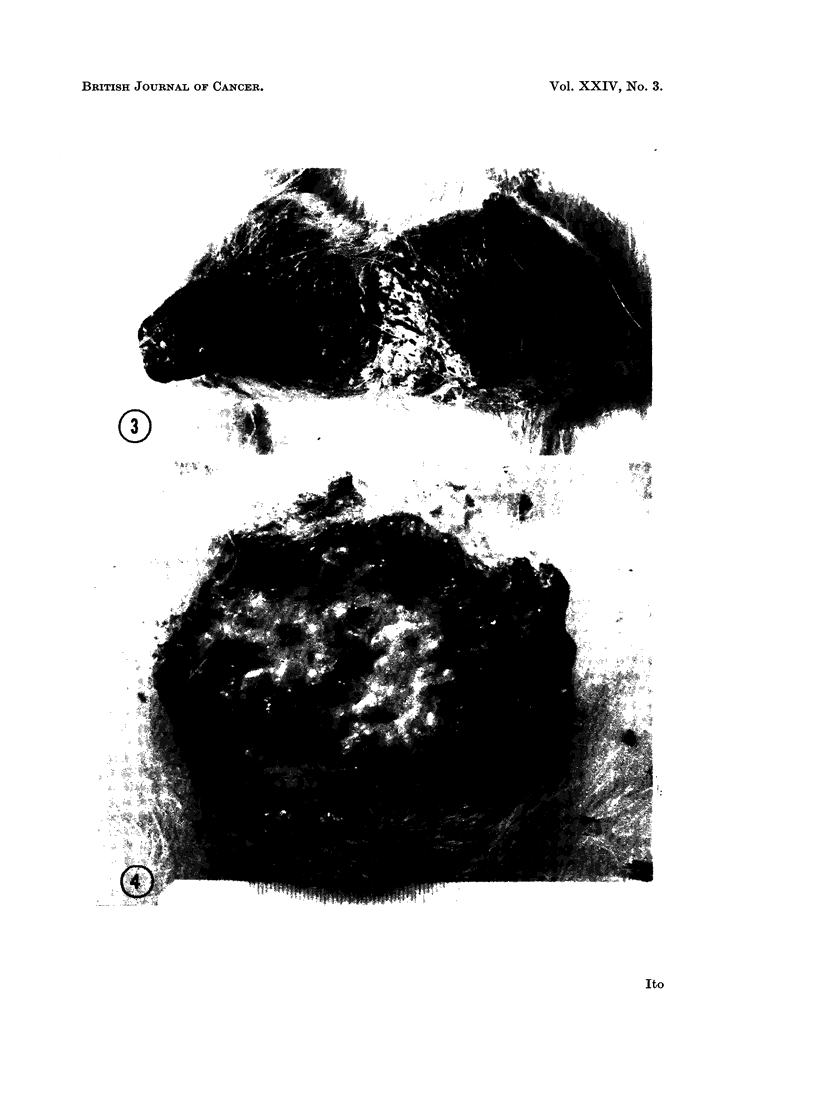
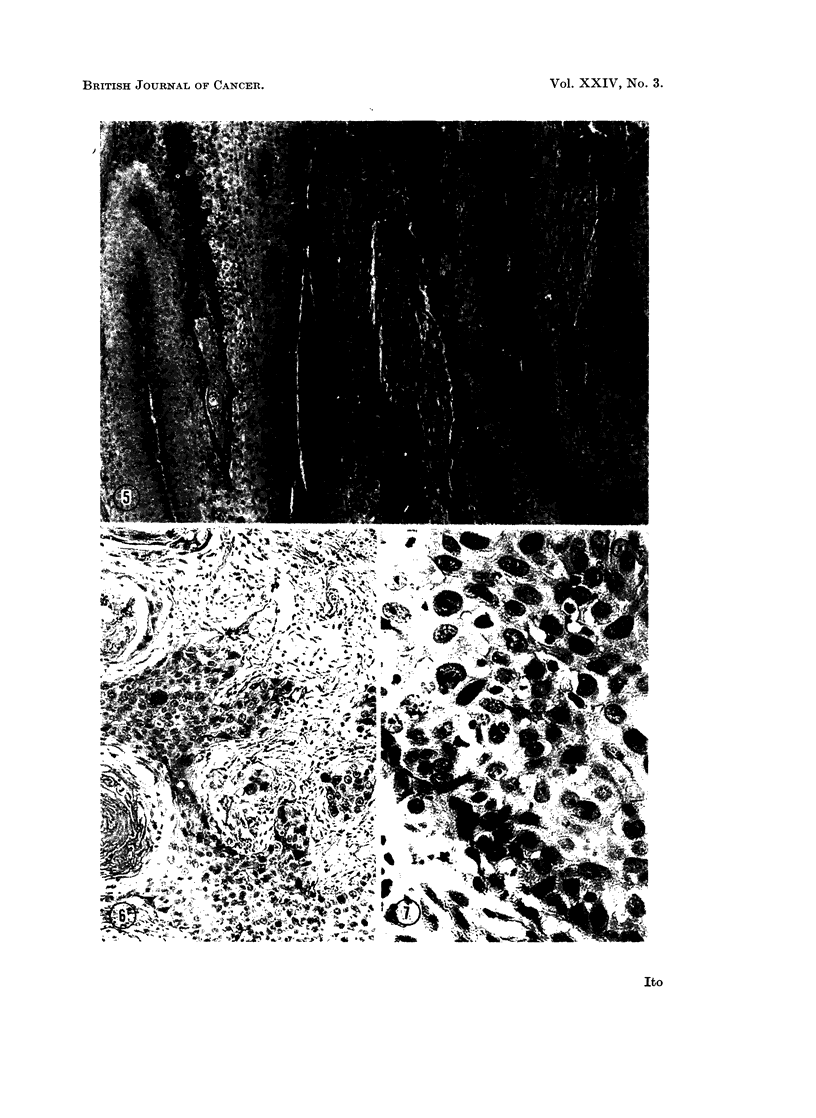
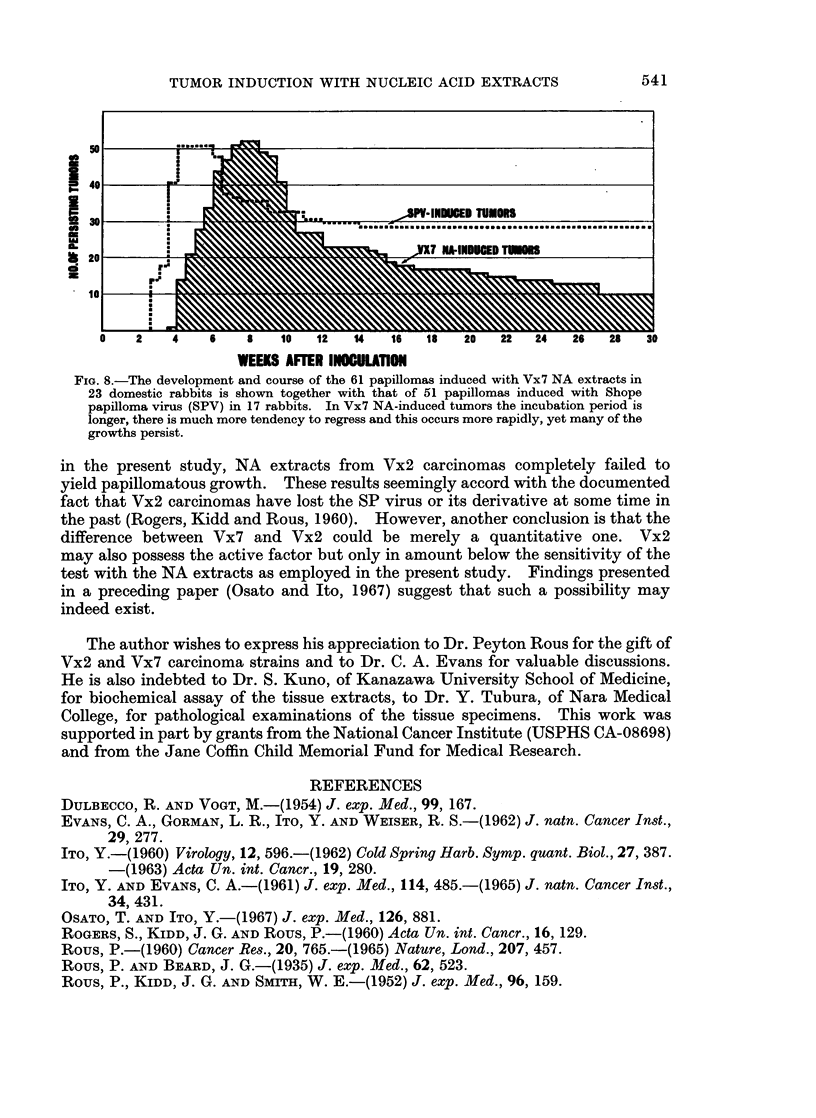
Images in this article
Selected References
These references are in PubMed. This may not be the complete list of references from this article.
- DULBECCO R., VOGT M. Plaque formation and isolation of pure lines with poliomyelitis viruses. J Exp Med. 1954 Feb;99(2):167–182. doi: 10.1084/jem.99.2.167. [DOI] [PMC free article] [PubMed] [Google Scholar]
- EVANS C. A., GORMAN L. R., ITO Y., WEISER R. S. Antitumor immunity in the Shope papilloma-carcinoma complex of rabbits. I. Papilloma regression induced by homologous and autologous tissue vaccines. J Natl Cancer Inst. 1962 Aug;29:277–285. [PubMed] [Google Scholar]
- ITO Y., EVANS C. A. TUMORIGENIC NUCLEIC ACID EXTRACTS FROM TISSUES OF A TRANSPLANTABLE CARCINOMA, VX7. J Natl Cancer Inst. 1965 Mar;34:431–437. [PubMed] [Google Scholar]
- ITO Y. Relationship of components of papilloma virus to papilloma and carcinoma cells. Cold Spring Harb Symp Quant Biol. 1962;27:387–394. doi: 10.1101/sqb.1962.027.001.036. [DOI] [PubMed] [Google Scholar]
- Osato T., Ito Y. In vitro cultivation and immunofluorescent studies of transplantable carcinomas Vx2 and Vx7. Persistence of a Shope virus-related antigenic substance in the cells of both tumors. J Exp Med. 1967 Nov 1;126(5):881–886. doi: 10.1084/jem.126.5.881. [DOI] [PMC free article] [PubMed] [Google Scholar]
- ROGERS S., KIDD J. G., ROUS P. Relationships of the Shope papilloma virus to the cancers it determines in domestic rabbits. Acta Unio Int Contra Cancrum. 1960;16:129–130. [PubMed] [Google Scholar]
- ROUS P., KIDD J. G., SMITH W. E. Experiments on the cause of the rabbit carcinomas derived from virus-induced papillomas. II. Loss by the Vx2 carcinoma of the power to immunize hosts against the papilloma virus. J Exp Med. 1952 Aug;96(2):159–174. doi: 10.1084/jem.96.2.159. [DOI] [PMC free article] [PubMed] [Google Scholar]
- Rous P. Viruses and tumour causation. An appraisal of present knowledge. Nature. 1965 Jul 31;207(996):457–463. doi: 10.1038/207457a0. [DOI] [PubMed] [Google Scholar]







